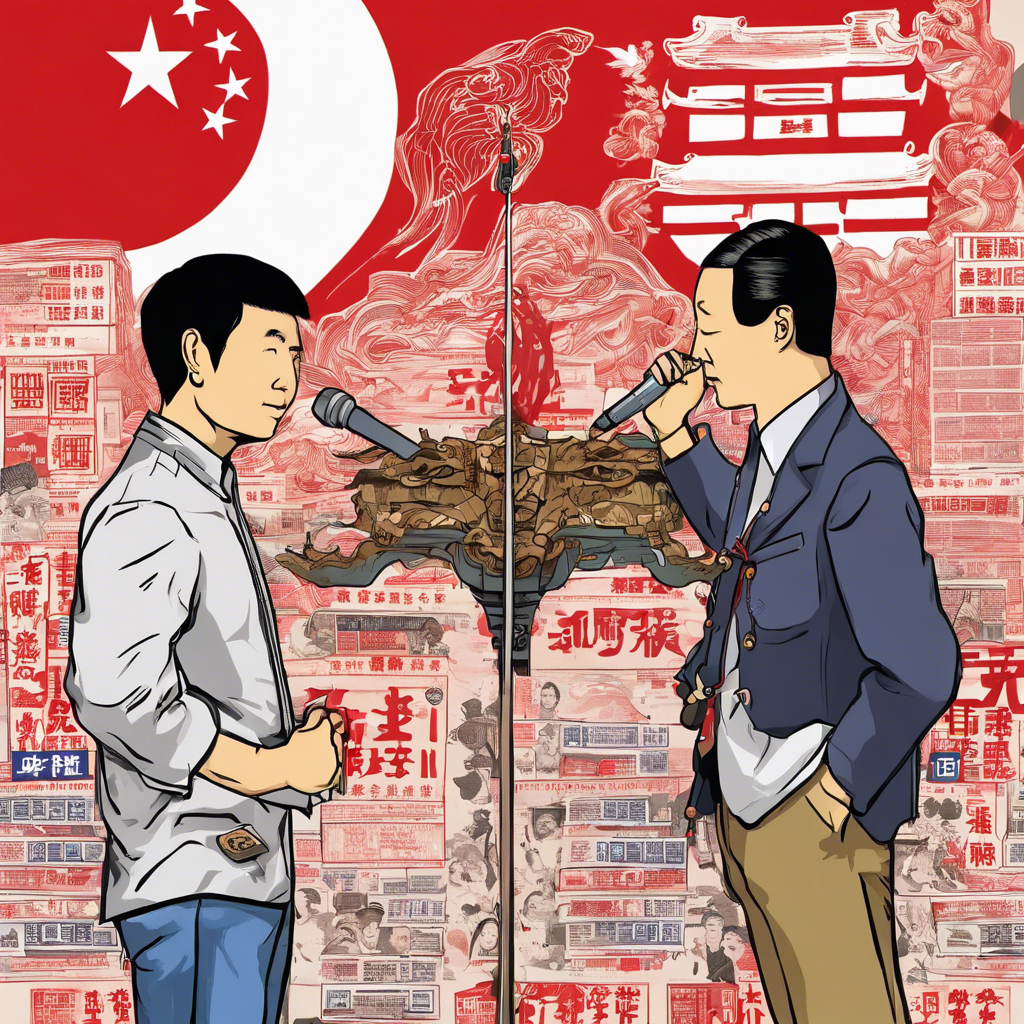Chinese Relations on Taiwan Voters’ Minds and Taiwanese Pop Music in China

The Intricate Dance of Politics and Pop Culture between Taiwan and China
As Taiwan prepares for a crucial election, the state of its relationship with China looms large in the minds of many voters. Despite China’s overwhelming size and power, Taiwan has managed to exert its influence in an unexpected realm: pop culture. In this article, we explore the complex dynamics between Taiwan and China, examining how political tensions shape public sentiment and how Taiwanese pop music has found a surprising foothold in the Chinese market.
1: The Political Tug-of-War
The relationship between Taiwan and China has long been fraught with tension. Taiwan, officially known as the Republic of China, considers itself a sovereign state, while China views it as a renegade province that must be reunified with the mainland. This fundamental disagreement has fueled political debates and shaped the electoral landscape in Taiwan. With the upcoming election, voters are acutely aware of the implications their choices will have on cross-strait relations.
2: The Battle for Influence
While China may hold the upper hand in terms of political and economic power, Taiwan has managed to carve out a niche in the realm of pop culture. Taiwanese pop music, known as Mandopop, has gained a significant following in China, with Taiwanese artists enjoying immense popularity among Chinese fans. This cultural influence has not gone unnoticed by the Taiwanese government, which sees it as a way to maintain a sense of identity and influence in the face of China’s dominance.
3: The Soft Power of Music
Taiwanese pop music’s success in China can be attributed to several factors. First, the linguistic similarity between Mandarin Chinese and Taiwanese Hokkien allows for easy cross-cultural consumption. Additionally, Taiwan’s vibrant music industry has produced talented artists who have captured the hearts of Chinese listeners with their catchy tunes and relatable lyrics. This soft power has allowed Taiwan to shape the cultural narrative and foster a sense of affinity among Chinese audiences.
4: Political Implications
The popularity of Taiwanese pop music in China has not gone unnoticed by the Chinese government, which has sought to control and manipulate cultural exchanges between the two regions. In recent years, China has imposed restrictions on Taiwanese artists, banning them from performing or promoting their work in the mainland if they express support for Taiwanese independence. This heavy-handed approach highlights the political sensitivity surrounding cross-strait cultural exchanges.
5: A Two-Way Street
While Taiwan’s influence in China’s pop culture scene is significant, the relationship is not one-sided. Chinese artists and entertainment companies have also made inroads into the Taiwanese market, capitalizing on their vast resources and market appeal. This two-way exchange of cultural products underscores the complex and intertwined nature of the Taiwan-China relationship, where politics and pop culture intersect.
Conclusion:
As Taiwan gears up for a crucial election, the state of its relationship with China remains a key concern for many voters. While China’s power may seem overwhelming, Taiwan has found a way to assert its influence through the realm of pop culture. Taiwanese pop music’s success in China not only showcases the soft power of music but also highlights the intricate dance between politics and public sentiment. As the two regions continue to navigate their complex relationship, the influence of Taiwan in China’s pop culture serves as a reminder of the enduring power of cultural exchange.

